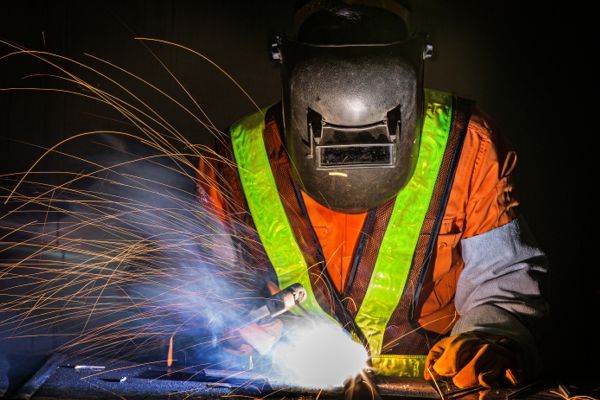Welding Safety

It's no surprise welding can cause damage to your eyes if you do not use the proper Personal Protective Equipment (PPE). But what about the rest of your body? Your hearing, skin, neck, back, head and your respiratory system are all at risk when performing welding operations. Here's how:
Skin: When you are welding, unprotected skin is exposed to hot metal, sparks and UV radiation (arc welding). Hearing: Welding can generate noise at levels which cause hearing loss.
Respiratory: If you perform welding operations in a poorly ventilated area, you are at risk of inhaling fumes, gas and dust present in the air as a result of welding. These elements enter your lungs and can cause flu-like symptoms known as metal fume fever. While metal-fume fever may clear up in a day or two, it is possible for it to cause much more damage to your respiratory system.
Head: Sparks can burn your hair, causing painful damage to your scalp and skin.
Neck and Back: Standing for long periods of time bent over your work can cause stress to your back. The traditional “nodding of the helmet” -- flicking your face shield down with your head and neck just before the arc is struck -- can cause neck strain.
These, along with the many hazards to your eyes -- burns caused by sparks, heat, molten metal and ultraviolet rays and cuts caused by flying spatter, and flash burns, commonly known as welder's flash or arc eye -- point to the importance of wearing the right PPE when welding. Talk with your supervisor about what PPE you need to protect you from the job you are doing.
Some of the most common PPE used when welding include: leather gauntlet type gloves, leather jackets, long-sleeved shirts, high top boots, welder's helmet, welder's cap, special filtered eyewear, face protection and hearing protection. Clothing should be made from leather, cotton or wool, and treated with flame-retardant coatings. Keep clothing dry and free of oil, grease or solvents. Pants with cuffs can collect sparks, so avoid them.
Respirators may be needed for some welding jobs. You must be properly trained in the use of the respirator and be aware when you need one. Your supervisor will be able to tell you the requirements needed when using a respirator.
Welding jobs are necessary, but there are many hazards involved with the task. Protect yourself from these hazards, even when performing welding tasks off-the-job. The few minutes it takes to put on the PPE can prevent injuries that will last a lifetime.
